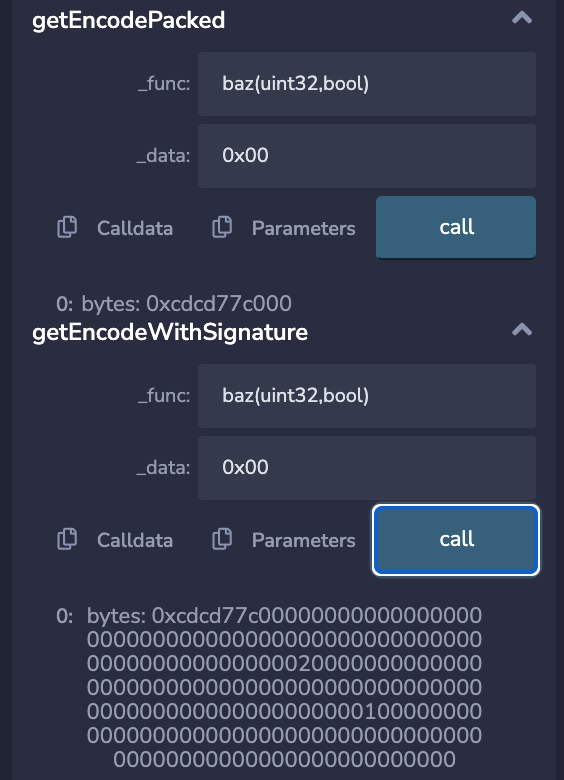// SPDX-License-Identifier: MIT
pragma solidity ^0.8.13;
contract testABI {
function getEncodePacked(string calldata _func,bytes calldata _data) public pure returns(bytes memory) {
return abi.encodePacked(bytes4(keccak256(bytes(_func))), _data);
}
function getEncodeWithSignature(string calldata _func,bytes calldata _data) public pure returns(bytes memory) {
return abi.encodeWithSignature(_func, _data);
}
}
I'm working on abi.encodePacked and abi.encodeWithSignature.
I want to know what "0000000000000000000000000000000000000000000000000000000000000000200000000000000000000000000000000000000000000000000000000000000000000100000000000000000000000000000000000000000000000000000000000000000000" means after the result of abi.encodeWithSignature.

